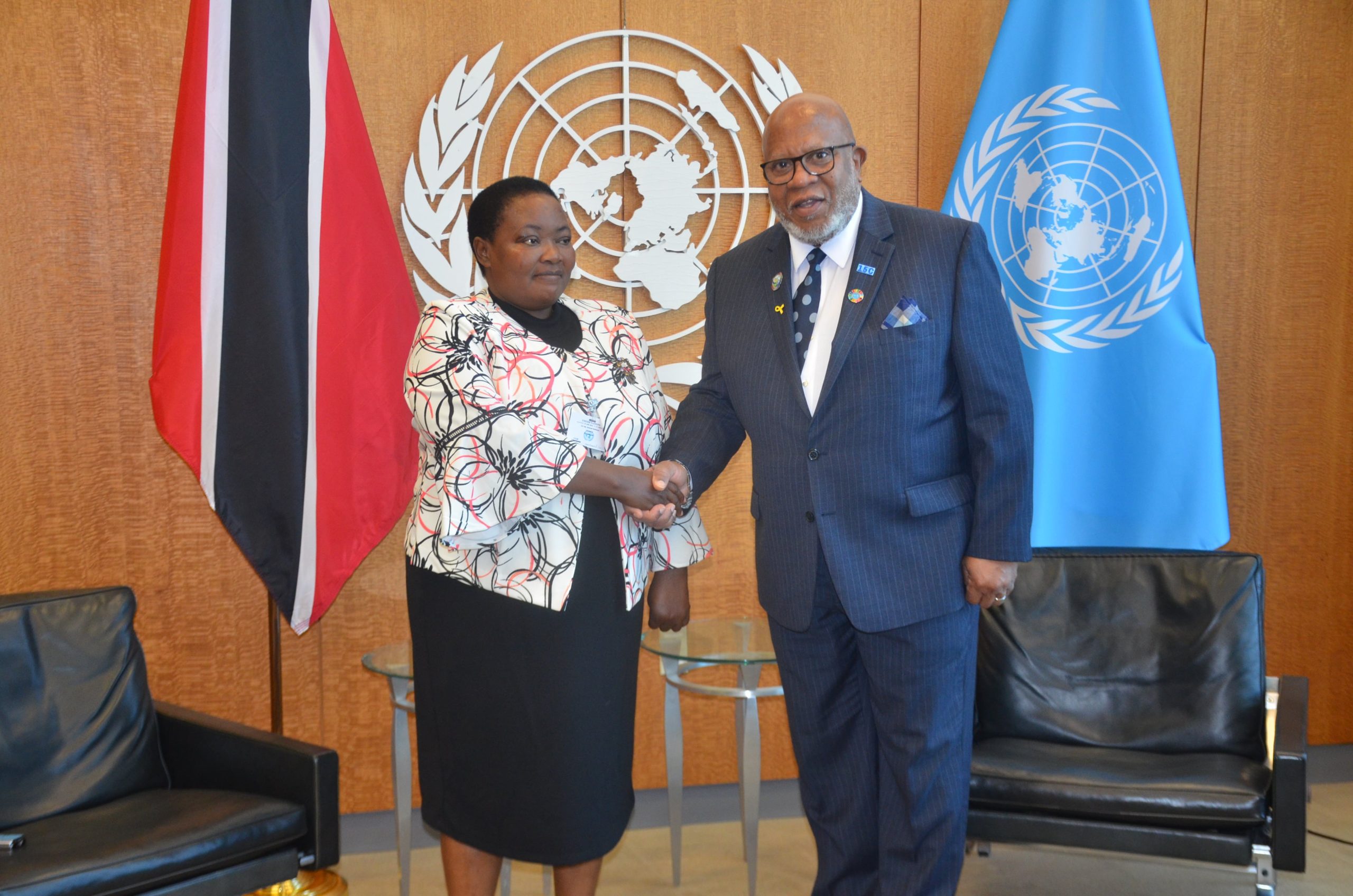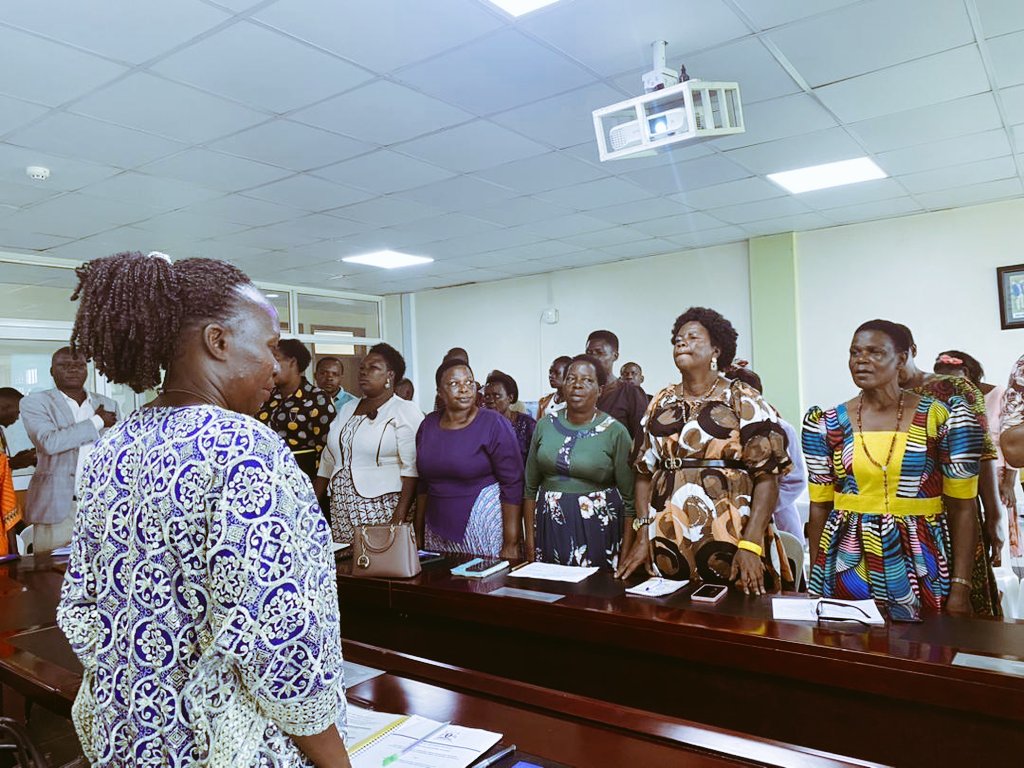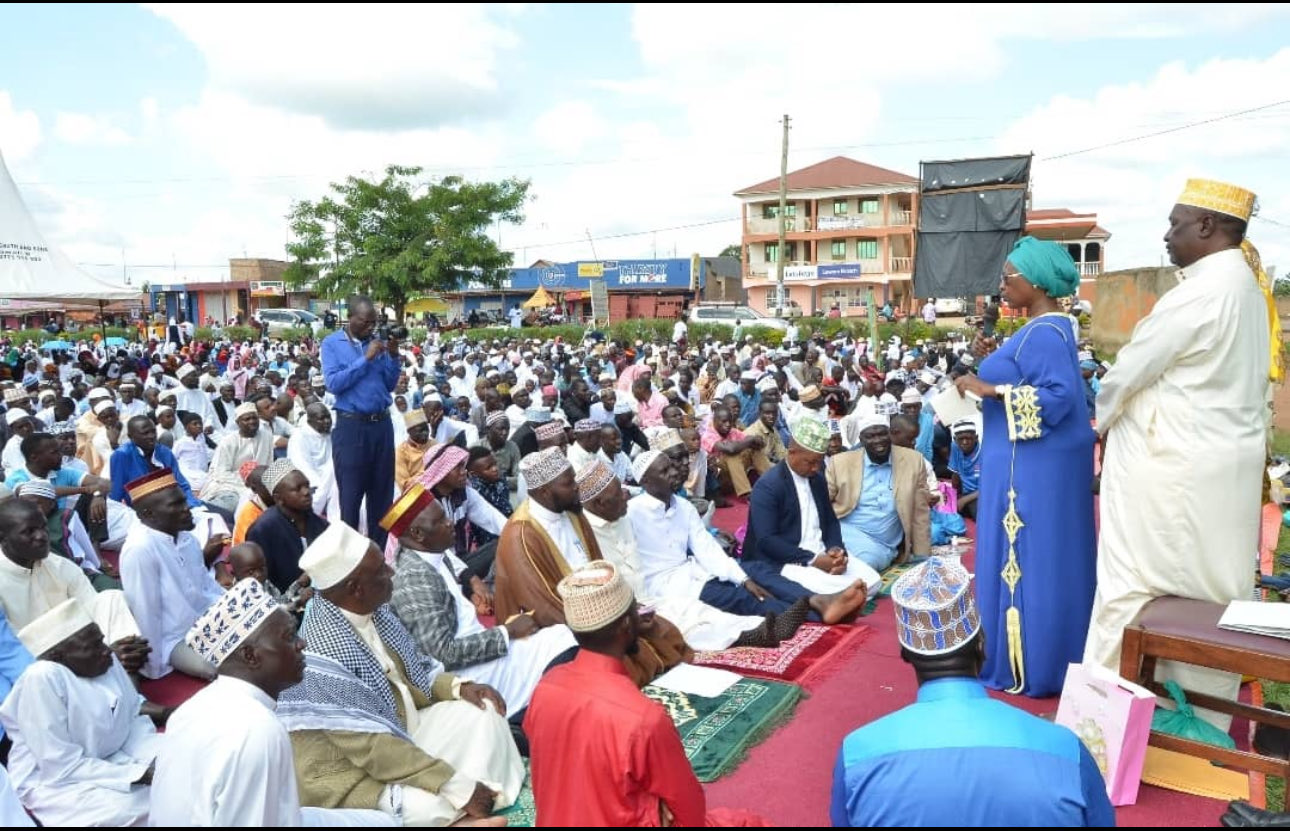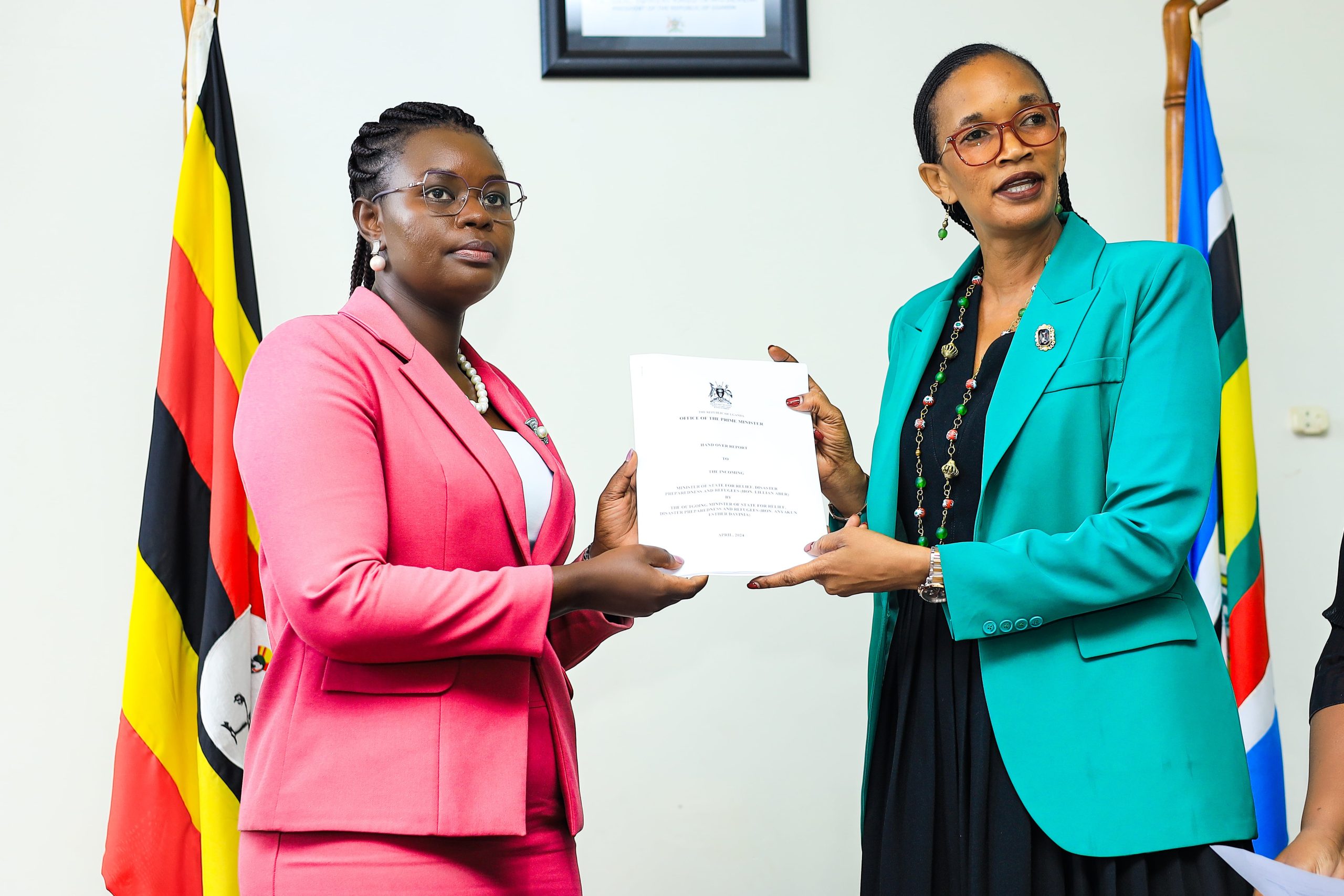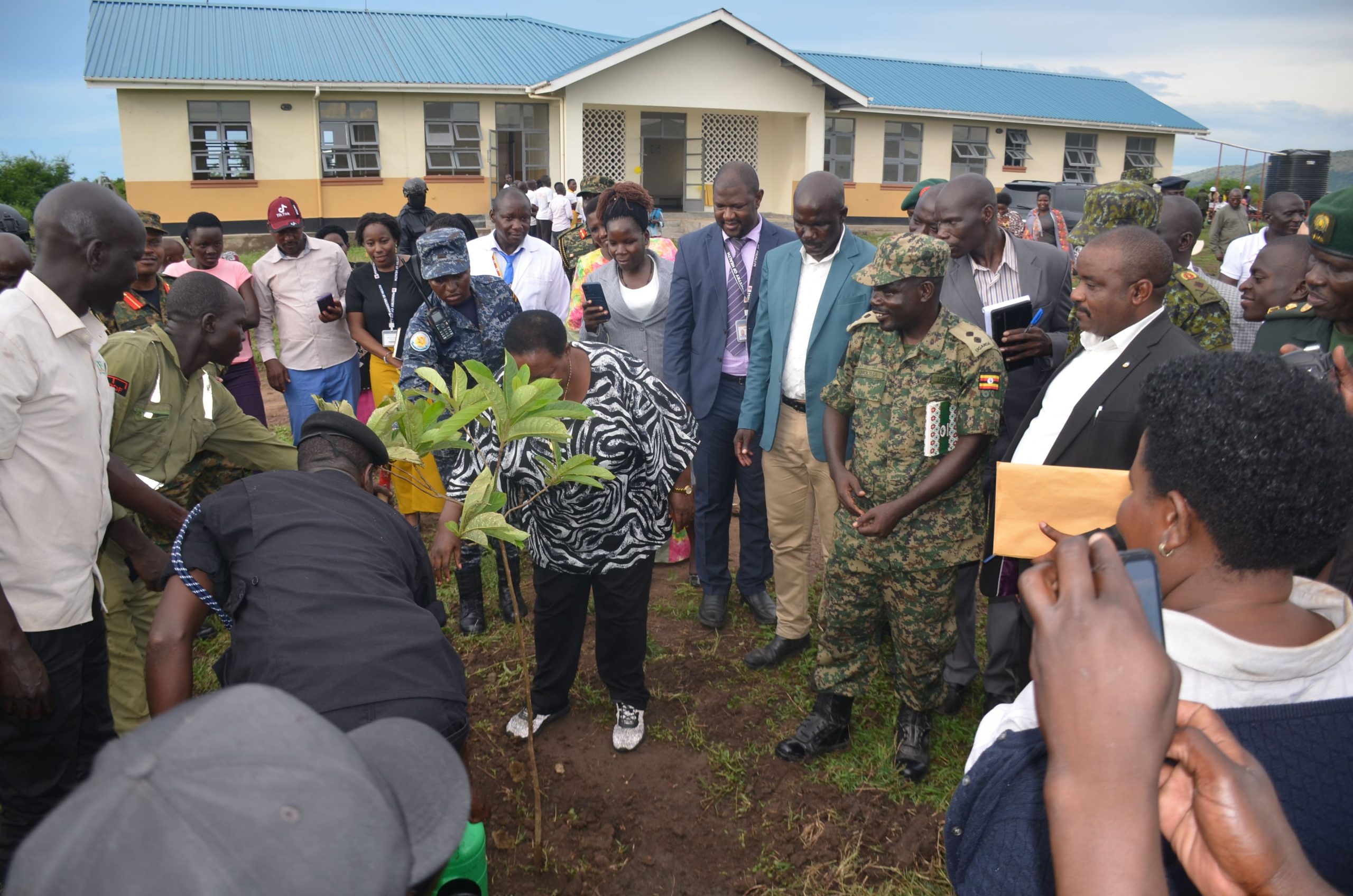By: Ismael Kasooha
NEW YORK
President Yoweri Museveni has told world leaders that there is a need to get rid of the exploitative phenomena of commercial lending to achieve global affluence.
“In order to achieve global affluence we must get rid of the exploitative phenomena of commercial lending. Commercial lending should be for frivolous goods such as spirits, perfumes, etc. however for infrastructure, manufacturing and for some of the services such as tourism, the borrowing must be concessional-low interest and taking long to be paid back. In that case much of the world will surge forward with prosperity,” noted the President.
Museveni advised developed countries to cancel exploitative debts and a hindrance to socio-economic transformation.
“The present exploitative debts should be canceled. They are a fetter to generalized socio-economic transformation,” he said.
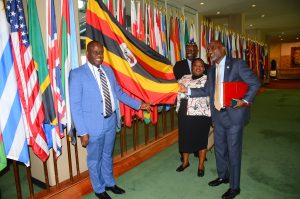
The State Minister of Gender and Labour Social Development, Balaam Barugahara, (left) joins the Prime Minister of Uganda Robinah Nabbanja and Adonia Ayebare (extreme right) the Permanent Representative at the United Nations in New York to display Uganda’s Flag
This was contained in the President’s message at the ongoing United Nations General Assembly high level thematic debate on debt sustainability and socio-economic equality for all at the UN headquarters in New York.
The Prime Minister of Uganda Rt. Hon. Nabbanja Robinah delivered the President’s message at the forum flanked by Uganda’s Permanent Representative to the United Nations Ambassador Adonia Ayebare.
The President says that there are pseudo-economists and parasites that favour the shameful narrow-based growth of the world economy.
Museveni said “In Uganda we are always working for broad-based social economic transformation involving all the stakeholders of the economy. When the economy of the whole world grows, there will be increased products and services and there will be broader prosperity for everybody.”
He added that as they discuss the issue of debt, it should be remembered that by 1970, affluence was only in western Europe, North America (Canada and USA and Japan). The rest of the world was in poverty.
Museveni gave the example of the huge country of China which was number eight in the hierarchy of development.
“This scenario of having a small Aristocracy of rich societies accounting for only 30% of the human population at the time was being regarded by those that had no eyes to see, as normal and permanent. Yet it was a distortion of what the world should be rationally organized. It was distorting so many factors,” noted Museveni.
He said that indeed in 1986 when Uganda tried to get investors for its high quality iron ore (Obutare) to build a vertically integrated steel industry in Uganda, we were stopped by people that are supposed to be knowledgeable, that it was not economic to invest in steel because there was a “glut” of steel in the world.
“A glut, why? It was because only a minority in the global population were building good homes. The rest of the world were staying in straw or grass huts. When china, therefore, having rationalized its policies to remove disincentives to wealth creation in that country, burst on the world scene with huge growth, the glut of steel of the pseudo economists turned into scarcity and the price of steel jumped from US 200 dollars to US 900 Dollars per tonne,” the President explained.
He noted that on account of socio-economic transformation in India, China and some other countries demand for other commodities like cement, copper etc, went up.
Uganda’s permanent representative to the United Nations in New York Ambassador Adonia Ayebare reiterated Uganda’s commitment as the Chair of the G77+China and the Non-Aligned Movement (NAM) to cooperate with the United Nations in achieving the set targets of the Sustainable Development Goals (SDGs).
Ayebare said that the G77+China calls for urgent action on debt sustainability for development and called for reforms in financial architecture.
In a related development, the Prime Minister held bilateral talks with the United Nations General Assembly President H.E. Dennis Francis and discussed matters of mutual benefit.
The talks took place at the UN Headquarters in New York on Tuesday at the sidelines of the ongoing thematic debate on sustainable development goals (SDGs).
Nabbanja who was flanked by the State Minister for Gender in charge of Children and Youth Affairs, Balaam Barugahara, and Uganda’s Permanent Representative to the UN Ambassador Adonia Ayebare met the UNGA President and thanked him for the invite extended to Uganda during the week-long debate.
The Premier asked the UN General Assembly President to add a voice to the exploitative debts affecting developing countries and pledged continued support of Uganda.
The President of the UN General Assembly, H.E Dennis Francis, thanked Uganda for the cooperation in organizing the weeklong sustainability debate and also actively taking an active role in all activities.
Earlier on in the day the Prime Minister visited the offices of the G77+China hosted at the United Nations Complex and reiterated Uganda’s commitment to support and coordinate all the members for the benefit of all member states.
Minister Balaam Barugahara says that developing countries need to create jobs for the youth and also ensure that factories or industries are established in countries that produce raw materials for socio-economic transformation.
Aturo Lozaro of G77+China Secretariat says that they are ready to cooperate with Uganda the chair of G77+China.
Achieving debt sustainability and socio–economic equity necessitates a well-coordinated multilateral effort to reshape and reform the international financial architecture – especially the International Financial Institutions, so that they can better support and facilitate sustainable development in the world.
The week-long high level thematic debate offers an opportunity to identify the challenges on the pursuit of debt sustainability and shine a spotlight on the implications of the current debt crisis on developing nations with a view of accelerating national and international action to achieve socio-economic equality for all.
End
